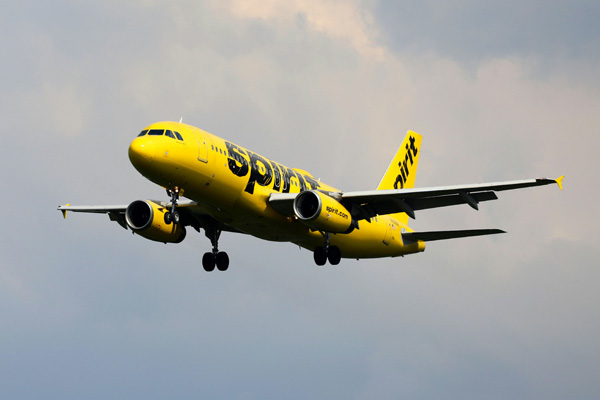Spirit and JetBlue appeal blocked merger, leaving consumers unsure of consequences

[Spirit Airlines Airbus A320-200. Photo credit to Unsplash]
On January 16, 2024, an American federal judge blocked JetBlue Airline’s proposed $3.8 billion acquisition of Spirit Airlines, preventing the combining of the two airlines into one company.
The judge believed the merger could decrease competition among budget airlines and, therefore, increase prices and provide fewer choices to consumers.
Spirit Airlines sought a merger after failing to recover from the COVID-19 pandemic, unlike other larger airlines that fully recovered.
Analysts also noted that it's difficult for Spirit to overcome its financial crisis without finding another airline to merge with.
Spirit initially attmepted to merge with other ultra-low cost airlines, but when unsuccessful, reconsidered JetBlue’s offer and accepted it.
The American Department of Justice sued the deal, arguing that it would kill Spirit Airlines and decrease competition.
Jetblue countered, claiming that combining the two airlines is necessary to enhance competition with larger airlines.
The Department of Justice contended that if JetBlue merges with Spirit, consumers will have fewer affordable options due to a reduction in planes, removal of 10-15% of seats, and a significant fare increase of 30%.
In court, the federal judge sided with the Department of Justice, accepting their view that the merger would harm consumers by increasing prices and eliminating the merits of Spirit Airlines’ “ultra-low-cost” service.
This lawsuit presented a challenge for the court as it involved balancing companies’ freedom of choice to merge against the harm posed to consumers who rely on Spirit Airlines for low-priced fares.
The success of the appeal now depends on JetBlue and Spirit convincing the new court that the merger will bring more benefits than harm, ultimately reversing the previous court's decision.
Following the lower court’s block, Spirit and JetBlue have appealed to a higher court to salvage their merger.
However, Spirit executives themselves echoed concerns similar to the lower court’s, questioning whether the merger would retain Spirit’s status as a low-cost airline and be as effective in lowering fares on competitive routes.
Because of Spirit’s financial problems, they have not been able to focus on preparing to appeal the lower court’s decision.
The airline’s substantial debt, resulting from predominantly domestic flights within the United States, has constrained its ability to generate sufficient profit.
If the appeal fails, Spirit might be acquired by an airline other than JetBlue, or use bankruptcy to sell its assets to restructure its debt.
Currently, consumers are uncertain whether the merger, if successful, will continue to provide them with an affordable airline system or if it will lead to competition with larger airlines, thereby increasing prices.
JetBlue’s potential acquisition of Spirit Airlines could harm the public by dissolving credit card partnerships that exist between the airline and banks, making flying inaccessible for students, teachers, and veterans who receive special deals on tickets.
In contrast, there was a positive market response towards JetBlue based on projected increased shares due to the possible merger between Spirit and JetBlue, reflecting some consumers’ appreciation of the idea of a merger.
Given Spirit’s affordability and accessibility for domestic transport, a failed merger could negatively impact the market due to a decrease in frequent travel.
The impeded merger between JetBlue and Spirit has sparked controversy, leaving consumers uncertain about whether changes will have positive or negative impacts.

- Matthew Park / Grade 9
- Seoul International School


